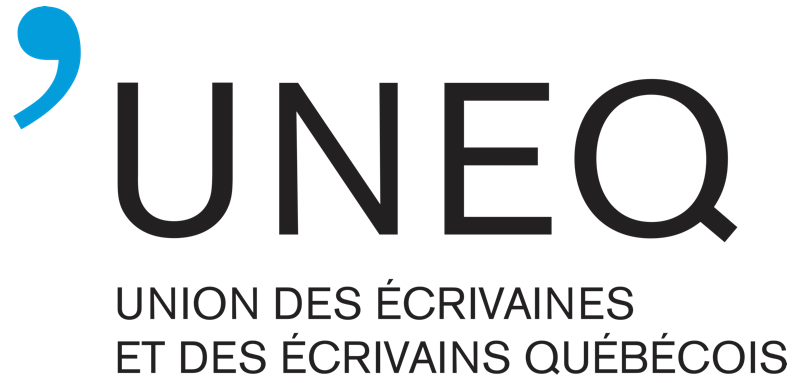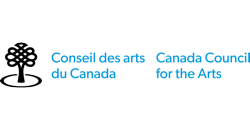The Copyright Act Review Committee Despises Creators
(Translation of a press release issued on 5 June 2019 – click here.)
Montreal, 6 June 2019 – After more than a year of work, the House of Commons Standing Committee on Industry, Science and Technology (INDU Committee) unveiled a long-awaited report as part of the review of Canadian copyright law. The UNEQ (Union des écrivaines et des écrivains québécois) denounces indignantly the recommendations of this report, which ignore completely the claims of creators.
The Copyright Act was amended in 2012 by Stephen Harper’s Conservative government, with dire consequences for creators. Among other things, new exceptions have allowed institutions and individuals to use works without remunerating the authors. Creators who feel wronged must take legal action themselves, but the statutory damages are so minimal that they lose any deterrent effect.
The consequences of the ‘fair dealing’ exception in education
With regard to the number one issue for writers and creators, the so-called fair dealing exception in the education sector, the recommendation of the INDU Committee reads as follows: ‘That the Government of Canada consider establishing facilitation between the educational sector and the copyright collectives to build consensus towards the future of educational fair dealing in Canada.’ You have read correctly: that the government ‘consider establishing facilitation’. We are a long way from a concrete proposal!
However, the consultations that have been conducted by the INDU Committee since April 2018 have shed light on the damage caused by the so-called fair dealing exception in education: by amending the Copyright Act in 2012 to introduce this exception without defining the scope of the term ‘education’, the Conservative government has allowed any organisation providing whatever training to reproduce works on a large scale in favour of users to the detriment of right holders.
The 2012 Act has, therefore, allowed the free use of works that were previously licensed to collective management societies – writers are familiar with Copibec in Quebec and Access Copyright elsewhere in the country. As of January 2013, all provinces, except Quebec, and many educational institutions stopped paying royalties for reproduction rights. In 2014, 28 universities in English-speaking Canada did not renew their licenses with Access Copyright and changed their copyright policies to reflect ‘fair dealing’, using criteria that were never fixed, which thus resulted in several lawsuits. (In Quebec, only the Université Laval chose this path in 2014 and, fortunately, in 2018, took a step backwards.)
This situation is well-known and documented. In all provinces, except Quebec, about 600 million pages have been copied and scanned every year since 2013, without the creators getting their due. In Quebec, the university royalty fee per student has decreased by nearly 50% since 2013-2014 and the amount received by a rights holder per page reproduced has decreased by 23%.
A survey conducted by the UNEQ among its members in the summer of 2018 revealed that more than a quarter (27%) of respondents had experienced a loss of revenue from Copibec and Access Copyright since 2014. Several studies, surveys and testimonies have shown that the 2012 Act has led to a significant decline in the income of writers and artists, to such an extent that the middle-class artist is disappearing.
The so-called ‘fair dealing’ exception also contravenes obligations under international treaties on intellectual property and trade signed by Canada: the Berne Convention for the Protection of Literary and Artistic Works (administered by the World Intellectual Property Organization, WIPO), the WIPO Copyright Treaty, the Agreement on Trade-Related Aspects of Intellectual Property Rights (TRIPS, text annexed to the Agreement establishing the World Trade Organization), etc.
‘Instead of assessing the damage caused by the fair dealing exception and proposing solutions, the INDU Committee is throwing fuel on the fire,’ says Suzanne Aubry, President of the UNEQ. Recommendation 18, which calls on the government to introduce legislation to amend section 29 of the Copyright Act so that the list of purposes covered by the fair dealing exception is indicative rather than exhaustive, opens the door to even more egregious abuses. ‘An indicative list is obviously more imprecise than an exhaustive list,’ Suzanne Aubry continues.
It is precisely the lack of precision in the Act, since 2012, that encourages the judicialization of relations between the users of works and the creators.
A slap in the face to the Standing Committee on Canadian Heritage
At the beginning of the review process of the Act, the INDU Committee invited the Standing Committee on Canadian Heritage to conduct a parallel study of compensation models for artists and creators.
This study, released on 15 May, contains 22 recommendations that are sensitive to the reality of writers and artists. Once implemented, these recommendations would increase support for creators, fight piracy, regulate streaming music services, clarify or eliminate exceptions that do not protect literary and artistic works, extend moral and economic rights, and many others. This report, which is very well articulated and substantiated, is motivated by a vision of copyright that respects creators who wish to support cultural production while promoting access to works.
One of the key recommendations of the Standing Committee on Canadian Heritage, particularly with respect to writers, is that the ‘Government of Canada amend the Act to clarify that fair dealing should not apply to educational institutions when the work is commercially available.’ This recommendation reflects a well-established consensus in the publishing community.
However, the INDU Committee, by its own admission, did not even read this study before tabling its report, completely ignoring the recommendations of the Standing Committee on Canadian Heritage. This is an act of contempt, not only for creators, but also for the Department of Canadian Heritage, which should have been the leading agency in the Copyright Act review process in the first place.
Nipping the debate in the bud
As a final nail in the coffin, the INDU Committee recommends that the Government of Canada introduce legislation to eliminate the requirement to conduct a review of the Act every five years.
Without this obligation introduced in 2012, creators would not have had such a forum to make their voices heard in Ottawa. The 2012 Act would not have been publicly dissected, criticized and challenged, no debate would have taken place. It would have been the reign of the status quo. It seems that this is the wish of the INDU Committee, which could rename the Copyright Act the User Rights Act.
‘On April 23rd, with 15 professional organisations representing some 200,000 artists, we launched the campaign A Life Without Art? Really? to draw the attention of the general public to the dangers of this law and the need to strengthen it,’ recalls Laurent Dubois, Director General of the UNEQ. ‘Today, we can say that creators and their works are more threatened than ever. The Government of Canada has two contradictory reports from two opposing committees. It will have to make a crucial and decisive choice to express its vision of culture in Canadian society.’
⇒ To view the report of the Standing Committee on Industry, Science and Technology, click here.
⇒ To view the report of the Standing Committee on Canadian Heritage, click here.
⇒ For the campaign A Life Without Art? Really?, click here.
About UNEQ
Founded in 1977, the Union des écrivaines et des écrivains québecois brings together more than 1,600 poets, novelists, playwrights, essayists, writers for young audiences and authors of scientific and practical works. The UNEQ works to promote and disseminate Québécois literature in Quebec, elsewhere in Canada and abroad, as well as to defend the socio- economic rights of writers.
— 30 —
Source: Union des écrivaines et des écrivains québécois (UNEQ)
Contact: Jean-Sébastien Marsan, Director of Communications, 514 849-8540 or 1 888 849-8540 ext. 225 | jsmarsan@uneq.qc.ca




